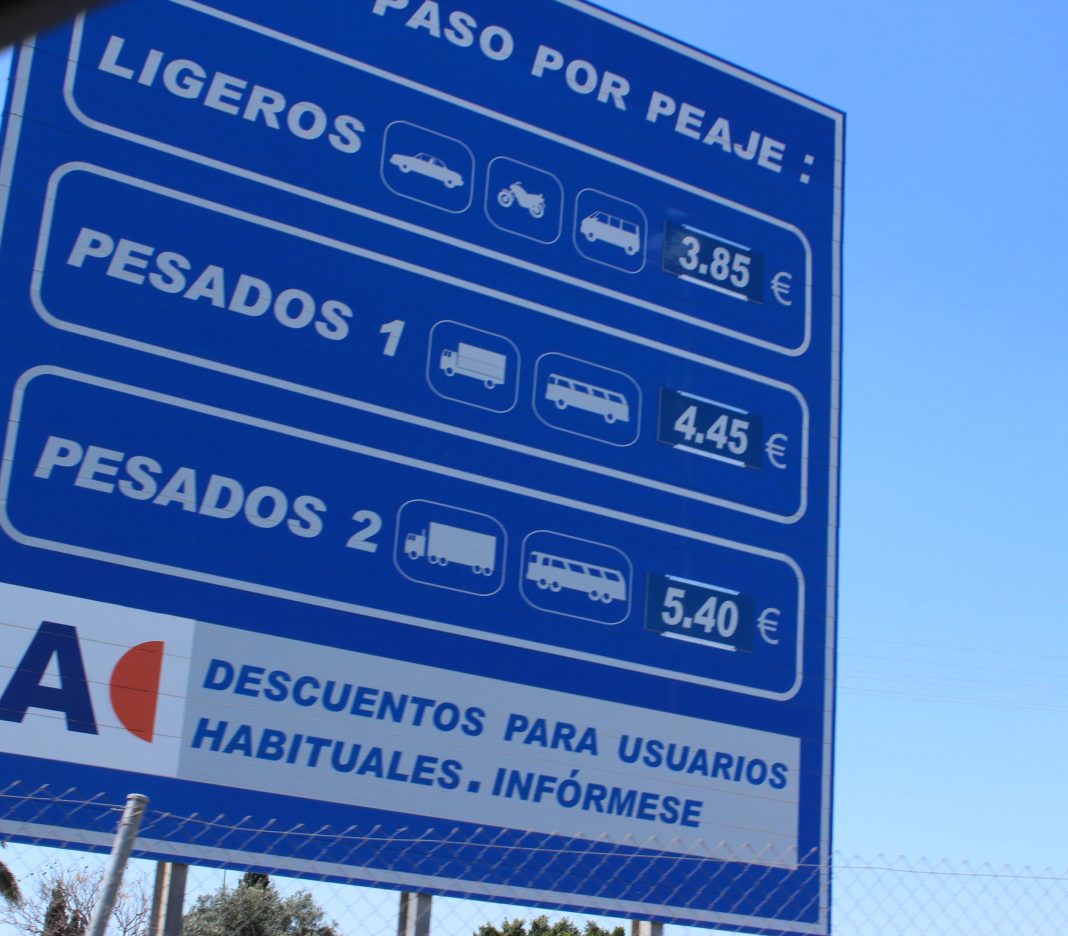The Spanish government are still thinking about how to ensure the functionality of the extensive public highway network. Although the decision is still far from being conclusively resolved, the Ministry of Public Works is considering making people pay for the usage of some roads that are currently free.
The payment is going to be “symbolic,” i.e. around a tenth of what is generally paid for driving on the toll roads. Part of this tax will help to reduce the toll of those roads that are currently privately owned.
The government stopped the toll collection of the AP-1 road from Burgos-Armiñón after their contract with Itinire ended on December 2018. Additionally, the toll regime will stop on two roads from next December onwards: AP-7 between Tarragona and Alicante, and AP-4 between Sevilla and Cadiz. As a result, these roads will be returned to the state.
In order to allocate funds for road maintenance, the state is working on several alternatives. The predominant one is that the use of the roads shouldn’t be toll-free. The toll should be reduced by around 10% of the current rate, so that these taxes will be able to cover road maintenance costs. Along with the regulation of toll fees, other measures will be taken, for instance, directing part of the income to lower the traditional tolls in areas where the roads are still privately owned.
Of the 17,163 kilometers of long-distance roads, the government will exempt more than 1,000 kilometers of roads from toll charges. More than 12,000 km currently belong to the state, among them, 2,759 km are toll roads. By 2021, some 1,533 km will have been returned to the state, as the concession contract with private enterprises expires. The state is going to take over the costs of its maintenance by taking the money from the General Budget.
After these announcements, many people are likely to believe that these measures are taken by opposition to damage the reputation of the present government. The citizens also believe that applying this law would be a very symbolic measure. According to the media, a route from Madrid to Valencia would cost about €50; from Almeria to Granada some €20; and from Murcia or Malaga, 30 symbolic euros.
The state is going to apply the “symbolic tax” depending on how contaminating your vehicle is. However, if drivers switch their cars to electric ones, then in order to pay less, they will end up with €400 electricity bills. So, it’s a gamble either way; a bit like roulette! After all, nobody knows how to play roulette in such a way as to ensure a perfect outcome; as you have equal chances of winning or losing when you bet on black or red.
Some activists might say that such a new concept will protect the environment, as the usage of electric cars will reduce the air and soil contamination. Taking all of this into account, the country will benefit from the innovations that could be introduced.
The possible end of the era of toll roads will possibly have a negative impact on employment. The UGT union declared that more than 1,500 jobs could disappear by 2021, due to the suppression of toll roads by 2021. This has already happened with AP-1, when the state-owned enterprise Seitssa, which was in charge of the road maintenance, could not provide their employees with decent payments when their contract finally expired.
The current Minister of the Public Works, Jose Luis Abalos, has mentioned in an interview to EL PAÍS that it is necessary to finance the high-capacity road network, and the community should adhere to two basic principles: the amount of payments will depend on the level of contamination produced by cars; and some roads won’t be free to use. Also, he stressed that in some areas, driving on the road will remain free of charge; while in others, drivers will have to pay.
One of the challenges of the new government is to find a model of financing the high capacity road network. The idea is to put those principles into practice. Spain has a railroad infrastructure that no one disputes, and everybody pays for their railroad tickets; in the airport, everybody pays airline taxes. But no one wants to pay for the roads. So, a lot of commercial activity is carried out on the road, and it has to be treated as another kind of infrastructure.
Nevertheless, Abalos does admit that particular cases need to be taken into account, like the roads of Asturias or Galicia which cost of maintenance is higher. Also, he stresses the need to start financing high capacity roads, whose service costs have skyrocketed, and for which the current budget allocation is insufficient.





